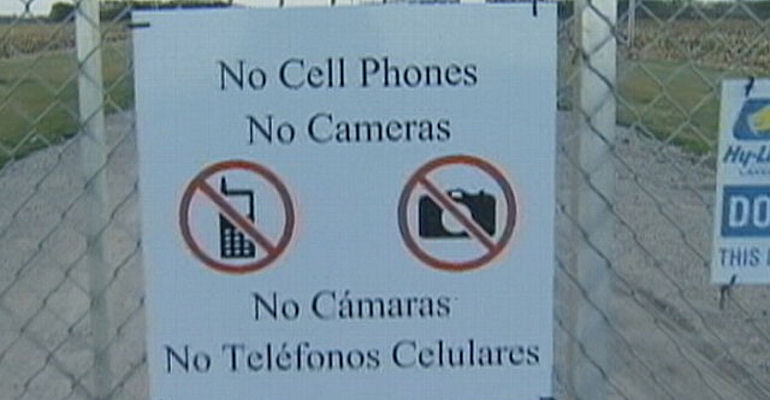District court overturns part of Idaho’s 'ag gag' law
Ninth Circuit upheld provisions of ag security law protecting ag operations from people who misrepresent their identity for employment.

In a ruling issued Jan. 4, the U.S. Court of Appeals for the Ninth Circuit in Seattle, Wash., struck down provisions of Idaho’s “ag gag law” -- also referred to as the “ag security law” -- stating that Idaho’s ban on recording conditions at farms and slaughterhouses violates the First Amendment. However, it did uphold other provisions of the law, including protecting agricultural operations from trespass by deceit and other wrongful means.
The law was written following a 2012 incident in which an animal rights activist went undercover to get a job at an Idaho dairy farm and then secretly filmed ongoing animal abuse there. Mercy for Animals, an animal rights group, publicly released portions of the video, which drew national attention.
Local law enforcement authorities launched an investigation that culminated in the conviction of one of the employees for animal cruelty. After the video’s release, the dairy farm owner and his family received multiple threats.
The Idaho Dairymen’s Assn. worked with the Idaho legislature in hopes of offering protection to agricultural producers. The overall purpose of Idaho’s law is to protect agricultural production facilities from interference by wrongful conduct.
The five-judge panel held that Idaho’s criminalization of misrepresentations to enter a production facility could not survive First Amendment scrutiny. “The panel held that the subsection criminalized innocent behavior, was staggeringly over-broad and that the purpose of the statute was, in large part, targeted at speech and investigative journalists. The panel also struck down the statute’s subsection which banned audio and video recordings of a production facility’s operations,” the court opinion notes.
The Ninth Circuit reversed the district court’s decision that the statutory provisions prohibiting obtaining records and employment by misrepresentation were unconstitutional. The Ninth Circuit found these provisions constitutional.
The court upheld that agricultural operations are protected from trespass by deceit and other wrongful means, obtaining employment from an agricultural operation by deceit and other wrongful means with the intent to harm the operation, entering a private agricultural production facility and recording its operations without consent and intentionally causing physical damage to an agricultural operation.
Dan Steenson, legal counsel for the Idaho Dairymen’s Assn., noted that it's important to understand that the decision does not alter existing Idaho law under which entry to private property gained by fraud or misrepresentation is trespass.
“The dissenting opinion disagreed with the majority regarding the constitutionality of subsection (a) prohibiting entry by misrepresentation. The dissenting judge would have upheld that provision as reflective of existing Idaho trespass law,” Steenson said.
Judge Margaret McKeown explained that the analysis is framed by the Supreme Court’s decision in United States vs. Alvarez, which addressed the First Amendment and false speech.
McKeown wrote, “In contrast, in accord with Alvarez, Idaho’s criminalization of misrepresentations to obtain records and secure employment are not protected speech under the First Amendment and do not violate the Equal Protection Clause. Thus, we affirm in part and reverse in part the district court’s entry of summary judgment in favor of Animal Legal Defense Fund (ALDF) and vacate in part its permanent injunction against enforcement of the statute.”
The court concluded that “Idaho is singling out for suppression one mode of speech -- audio and video recordings of agricultural operations -- to keep controversy and suspect practices out of the public eye.”
The ALDF cheered the ruling. The group successfully led a coalition to strike down Utah’s ag-gag law in 2017 and has litigation pending against ag-gag laws in Iowa and North Carolina.
“The Ninth Circuit’s decision sends a strong message to Idaho and other states with ag-gag laws that they cannot trample civil liberties for the benefit of an industry,” ALDF executive director Stephen Wells said.
The Idaho Dairymen’s Assn. was not a party to the lawsuit. Steenson said it is unknown whether the state of Idaho will appeal the Ninth Circuit’s ruling.
“As an industry, however, we are pleased that the Ninth Circuit has upheld the provisions of the statute that protect agricultural operations from people who would misrepresent their identity or intentions in order to obtain employment or records from Idaho farmers and that existing Idaho law will continue to protect Idaho farmers from trespass by deceit,” he said.
“We suspect the circumstances under which a person may enter another’s private property and, without the owner’s consent, record the owner’s conduct will continue to be a subject of national discussion,” Steenson concluded. “For now, we are pleased with the protections Idaho’s ag security law will continue to provide Idaho farmers.”
About the Author(s)
You May Also Like




.png?width=300&auto=webp&quality=80&disable=upscale)
